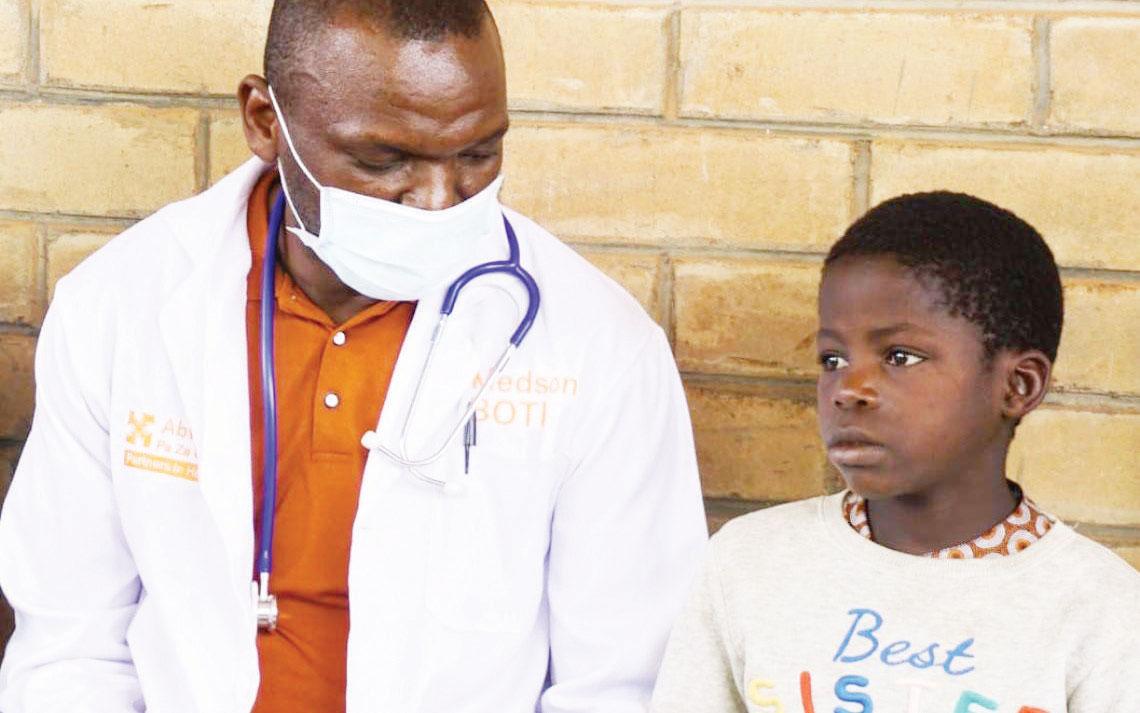Africa-Press – Malawi. Half a decade ago, weight loss, excessive thirst and tiredness heavily disrupted Chifundo Joseph’s life at a tender age of five. “I could not play with my friends and could not match their energy. I would easily get tired and excessively hungry. At the same time, I was also experiencing loss of appetite. I felt isolated,” Chifundo, now 10, says.
Days turned into weeks, weeks into months and the situation did not get any better. One day, his parents took off from their Gonthi Village in Traditional Authority Mlauli in Neno to Neno District Hospital. This journey was a turning point in Chifundo’s life.
He was put through mandatory screening of non-communicable diseases (NCDs) services that are available at the hospital and was diagnosed with Type 1 diabetes mellitus. Neno District Medical Officer Dr Enock Jambo notes that better screening services at the hospital have helped in detecting and treating NCDs.
“About 40 to 50 percent of all patients screened have an NCD. However, the common NCDs in children registered here are sickle cell anaemia, diabetes, iron deficiency anaemia, obesity and asthma.
“The earlier the detection, the better. However, there is a huge knowledge gap that needs to be addressed in the communities in as far as NCDs are concerned. Because of this lack of knowledge, there are a lot of myths associated with NCDs,” Jambo says.
Since Chifundo was diagnosed with the condition, he is surviving on two daily injections of insulin, which are administered by his 22-year-old brother, Samuel Joseph. Samuel takes his little brother to the hospital for assessment and collection of more insulin once every month.
“When they give us insulin, we store it safe using homemade cold storage solutions in the village. We keep the dosages in a clay pot filled with water and lay it on sand in the house to keep the insulin within the recommended temperature levels.
“The most exciting thing is that Chifundo has improved a lot ever since he started getting insulin. He is active and plays soccer with his peers both at home and at school,” Samuel says. Officials from Partners in Health (PIH) and the district hospital also visit little Chifundo’s home to monitor his condition.
Type 1 diabetes mellitus is an autoimmune disorder. The Centres for Disease Control and Prevention (CDC) highlights that in type 1 diabetes, pancreas does not make insulin or makes very little insulin, which can lead to high blood sugar.
Chifundo is currently in Standard Two at Nkomaliwiro Primary School. He cherishes the support he gets from his teachers as they know his condition. “I take my recommended foods at school. Teachers and my classmates are very supportive. I don’t feel left out but motivated to go to school,” the smiling and soft-spoken boy says.
The pilot phase of the NCD screening facility is being implemented by the Ministry of Health and PIH at Neno and Mangochi district hospitals, supported by Unicef Malawi with funding from Eli Lilly, an American pharmaceutical company.
In October this year, a delegation from Eli Lilly visited Neno and Mangochi district hospitals to appreciate their work in screening, treating and monitoring of NCD patients.
The team applauded the collaboration between the Ministry of Health, Unicef Malawi and PIH and healthcare workers’ commitment and contributions, particularly in monitoring NCD patients in communities.
“It was inspiring to see our joint vision coming to life in Malawi. We met heroic healthcare providers and partners who are managing and standing up the NCD clinics and the community health networks.
“We also had the chance to meet several children with life-threatening NCDs who are already benefitting from the programme which was the highlight of the trip,” John Steele, assistant vice president of Eli Lilly – Diabetes, says.
Steele added that the pharmaceutical company’s is still in its infancy and that it was “heartening to know how many more children and adults will benefit as well in Malawi.”
In February this year, Eli Lilly and Unicef announced a new collaboration to help improve health outcomes for 10 million children and adolescents living with chronic NCDs through to 2025.
Eli Lilly committed $14.4 million in support of Unicef’s lifesaving work to address NCD risk factors, strengthen health systems and enhance the ability of healthcare workers to care for patients in Malawi, Zimbabwe, Nepal, the Philippines and Bangladesh.
For More News And Analysis About Malawi Follow Africa-Press






